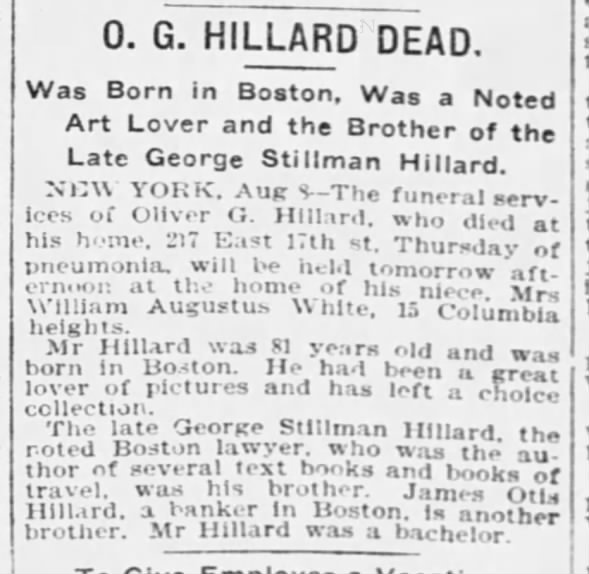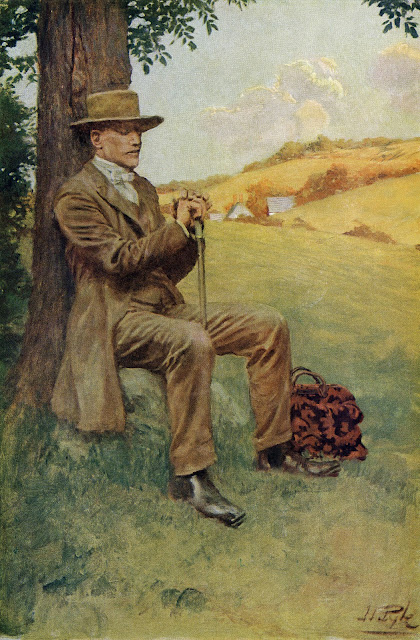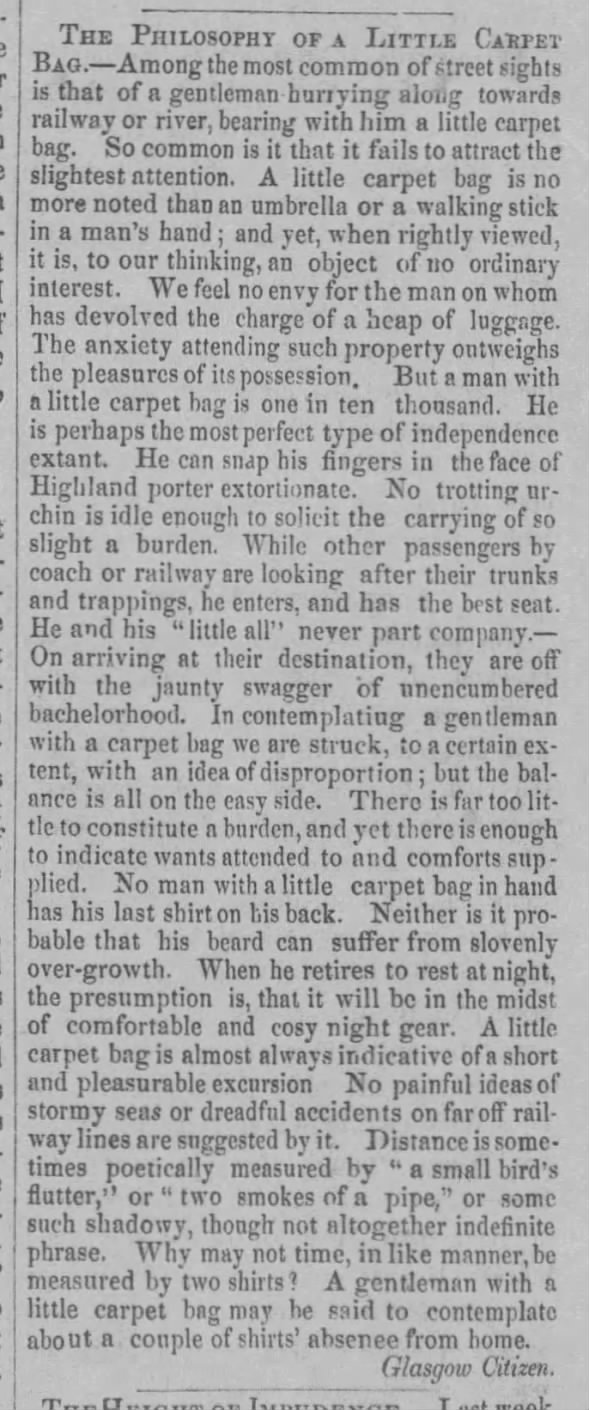After Herman Melville's death on September 28, 1891 the New York Times (October 6, 1891) printed a memorial tribute in the form of a letter to the editor signed "O. G. H." Obviously a well-informed acquaintance of the deceased, "O. G. H." remembered Melville as "the man of culture, the congenial companion, and the honestest and manliest of all earthly friends."
Minus the original and laughable heading The Late Hiram Melville, the Times letter was reprinted in The Critic Volume 16 on October 17, 1891 (alongside the earlier notice of Melville's death headed "Herman Melville / The Passing of Mr. Melville's Popularity") as "A LETTER TO THE Times FROM ONE WHO KNEW HIM." Google-digitized images from the 1891 Critic volume with the reprinted letter from "O. G. H." are accessible online courtesy of HathiTrust Digital Library:
The Critic editors appear less knowledgeable than "O. G. H." in their appended fact-check of his first paragraph. The editors claimed that Melville's first book was never "offered to or declined by the American publishers," but Melville's friend knew the truth. As verified in the "Recollections of Frederick Saunders," the Harper brothers initially declined Typee in manuscript since "it was impossible that it could be true and therefore was without real value." So quoted by Hershel Parker in Melville Biography: An Inside Narrative (Northwestern University Press, 2012) page 147; Parker adds the testimony of Melville's niece Charlotte Hoadley who believed the Harpers' early rejection of Typee "embittered his whole life."
Melville's sincere friend and admirer "O. G. H." has been identified as O. G. Hillard in Jay Leyda's Melville Log; and Oliver Greene Hillard in Melville in His Own Time (University of Iowa Press, 2015), edited by Steven Olsen-Smith, where Hillard's communication is given in full on pages 182-183. To begin to remedy the death of biographical facts lamented by Olsen-Smith, obituaries from New York and Boston newspapers are transcribed below.
 |
| New York Tribune - August 8, 1903 <https://chroniclingamerica.loc.gov/lccn/sn83030214/1903-08-08/ed-1/seq-9/> |
OBITUARY.
OLIVER G. HILLARD
Oliver G. Hillard, fr many years identified with Wall Street interests, died on Thursday in his home, No. 217 East Seventeenth-st., from septic pneumonia, in his eighty-first year. The funeral will take place to-morrow afternoon at the home of W. A. White, No. 158 Columbia Heights, Brooklyn. Mr. Hillard was enjoying excellent health when, on Thursday of last week, he was struck by a Broadway car. He was not knocked down, but was badly bruised, and recently pneumonia set in. His health for many years had been so vigorous that he never wore an overcoat in the coldest weather.
Mr. Hillard came of an old Boston family. He left Boston in early manhood for New-York, and for forty years had been connected with an office in Wall-st. He retired from business about fifteen years ago. He was a bachelor, and a man of quiet, art loving tastes. Among artists he enjoyed a large acquaintance, and collected many paintings, which he prized highly.
Mr. Hillard was a brother of the late George Stillman Hillard, the writer of school books and the law partner of Charles Sumner. He leaves a brother, James Otis Hillard, a banker, of Boston, and three nieces--Mrs. W. A. White, of Columbia Heights; Mrs. R. H. Loines, of Garden Place, Brooklyn; and Mrs. Winslow Bell, of Poughkeepsie.
A confirmed bachelor and art lover with known connections on Wall Street, Oliver G. Hillard (1823-1903) was a brother of Hawthorne's old friend and benefactor George Stillman Hillard.

O. G. HILLARD DEAD.
Was Born in Boston, Was a Noted Art Lover
and the Brother of the
Late George Stillman Hillard.
NEW YORK, Aug 8-- The funeral services of Oliver G. Hillard, who died at his home, 217 East 17th st. Thursday of pneumonia, will be held tomorrow afternoon at the home of his niece, Mrs. William Augustus White, 15 Columbia heights.
Mr Hillard was 81 years old and was born in Boston. He had been a great lover of pictures and has left a choice collection.
The late George Stillman Hillard, the noted Boston lawyer, who was the author of several textbooks and books of travel, was his brother. James Otis Hillard, a banker in Boston, is another brother. Mr. Hillard was a bachelor.
-- Boston Globe, August 9, 1903.
What happened to Hillard's "choice collection"? Sold at auction by Silo's Art Galleries on March 9 and 10, 1905. As advertised in the New York Herald on March 7, 1905 the sale conducted by auctioneers James Patrick Silo and Augustus W. Clarke would include
by order of the executrix
ESTATE OF O. G. HILLARD, DECEASED,
MANY IMPORTANT PAINTINGS
BY ANCIENT AND MODERN MASTERS.








.png)

 l
l

